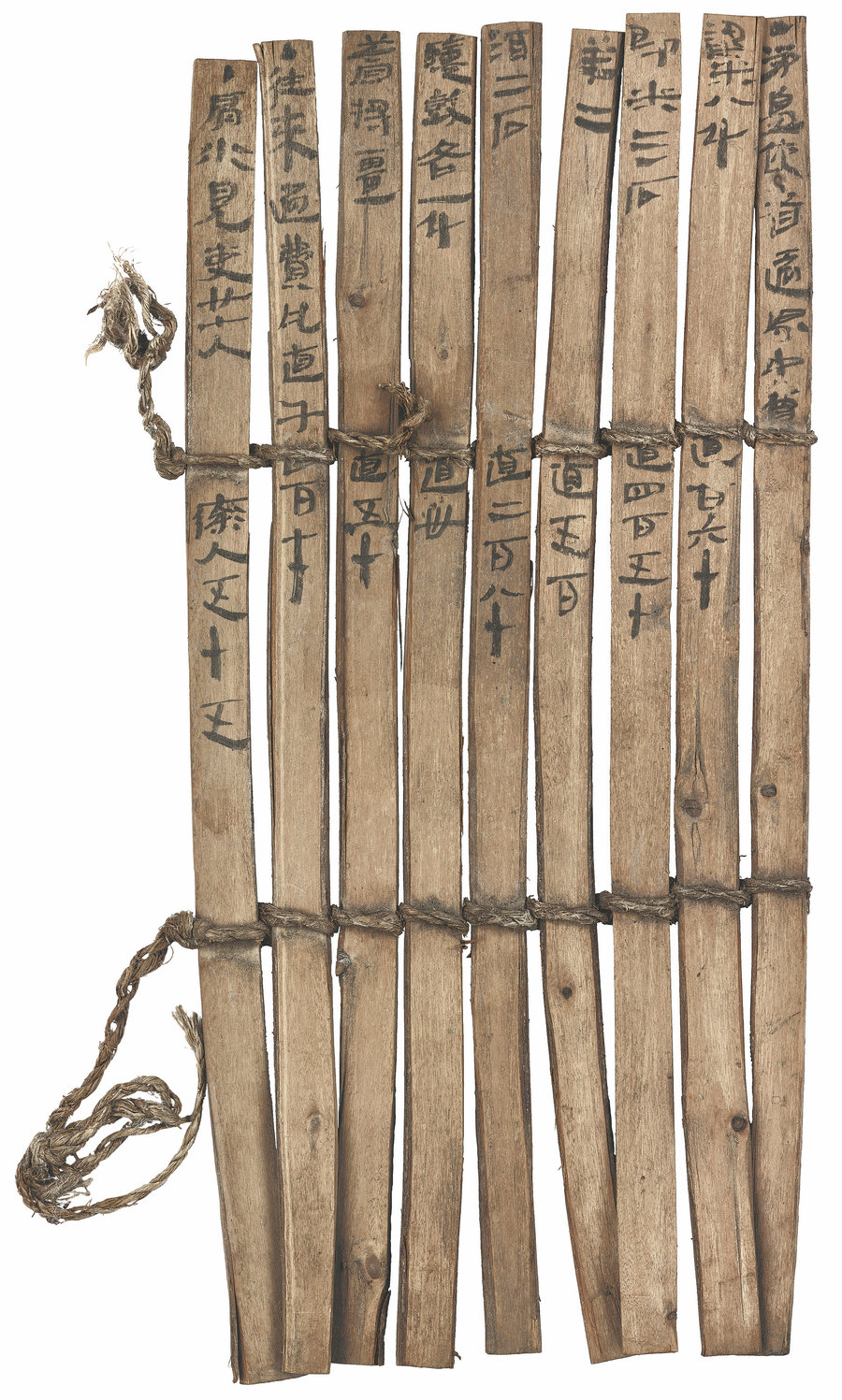Slipping into history


Stories told
During the Han Dynasty, every male adult had to serve at border areas for one year, and some of them were dispatched to Juyan. Another group of Juyan guards were criminals, who were sent to labor there as punishment.
"There was a system recording each soldier's contribution or misconduct. Conscripts could ascend to a higher position with their contributions, and criminals could reduce their penalties," says Xiao.
For example, a long slip made of a tree branch records the punishment received by Shi Guangde, a local official in Juyan, who failed to fulfill his duties. Shi did not check the watchtowers he was responsible for in time, leading to issues with the military equipment in them. The slip records the specific situation, down to details like the lack of equipment in each tower, and the fact that Shi was flogged 50 times for his mistake.
Besides the administrative records, there are a large number of personal letters, in which people express their feelings about military service, care for friends and family members, and requests for them to provide clothes and other aid.
"Such letters can better show the mental journey of the soldiers, and can help us gain a deeper understanding of their lives at that time," Xiao says.
For Zhu Jianjun, director of the Gansu Jiandu Museum, one of the slips that impressed him the most is a letter from a man to his brother. The letter shows that the man guarding the border area had left his younger brother at home. One day he heard from people coming from his hometown that his brother was sick, and wrote the letter, entrusting the fellow villager to bring it to his brother.
"Judging from where the slip was found, we know the letter was not sent to his brother in the end, but stayed in the garrison for more than 2,000 years," Zhu says. "We don't know if the younger brother recovered later, but after reading the letter we are moved by the emotions in it."
























